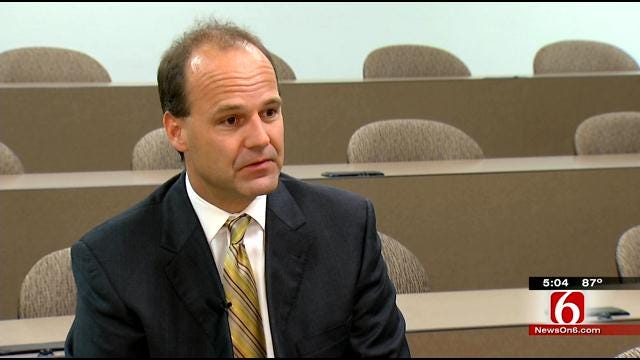Expert Says Cherokee Courts May Have Final Say In 'Baby Veronica' Case
An Indian law expert says, although there are a lot of complicating factors in the custody battle, the tribal court will more than likely trump South Carolina and Oklahoma state courts.Monday, August 19th 2013, 7:02 pm
The custody battle over little Veronica Brown has played out in many different courts over the past four years.
It was first brought before a South Carolina judge, then moved to the Supreme Court and is now in Oklahoma state and tribal courts.
An Indian law expert says, although there are a lot of complicating factors in the custody battle, the tribal court will more than likely trump South Carolina and Oklahoma state courts.
Veronica's biological father, Dusten Brown, left the Cherokee Nation Courthouse on Friday carrying a piece of his heritage with him: sticks used in the tradition Cherokee stickball game. Brown is a member of the Cherokee Nation.
Indian law expert Jason Aamodt, who is an assistant dean at TU's College of Law, said that may play a huge part in the custody battle over 3-year-old Veronica.
8/16/2013 Related Story: 'Baby Veronica' Hearings Take Place In Oklahoma; Mediation Agreement Filed
"In my view, the tribal court has primary jurisdiction at this point," Aamodt said.
South Carolina couple, Matt and Melanie Capobianco were present for Veronica's birth and had custody of her for the first two years of her life. But before the adoption was finalized, a South Carolina judge ruled that Veronica's biological father, Dusten Brown, should have custody of her, because of the Indian Child Welfare Act.
The U.S. Supreme Court later ruled the Indian Child Welfare Act didn't apply, because Brown never had custody of Veronica in the first place.
A South Carolina court then finalized the adoption and awarded the Capobiancos custody of the little girl, while a Cherokee Nation court gave custody to Brown and his family.
"When that guardianship happened, the subject matter jurisdiction in South Carolina, in my view, died," Aamodt said.
He said things got even more complicated when an arrest warrant for Veronica's biological father was issued in South Carolina, for custodial interference.
"We have criminal process filed in South Carolina and yet there's still civil remedies that are obviously still being worked out here in Oklahoma. It just makes the whole thing so much more complicated," Aamodt said.
The case has a lot of elements that make it unique. Aamodt said, although it can get confusing, this cross-country custody battle is shedding light on how the tribal court system works.
"Hopefully, what the case does in the future is it helps states and Indian tribes and all the other folks, who have to make these determinations, work better together," Aamodt said.
Aamodt, who is not involved in the case, said it would probably be in Veronica's best interest for both families to come up with a compromise.
We do know that a mediation agreement was filed, but because of a gag order, we do not know the details of that agreement.
More Like This
August 19th, 2013
September 29th, 2024
September 17th, 2024
Top Headlines
December 13th, 2024
December 13th, 2024
December 12th, 2024












